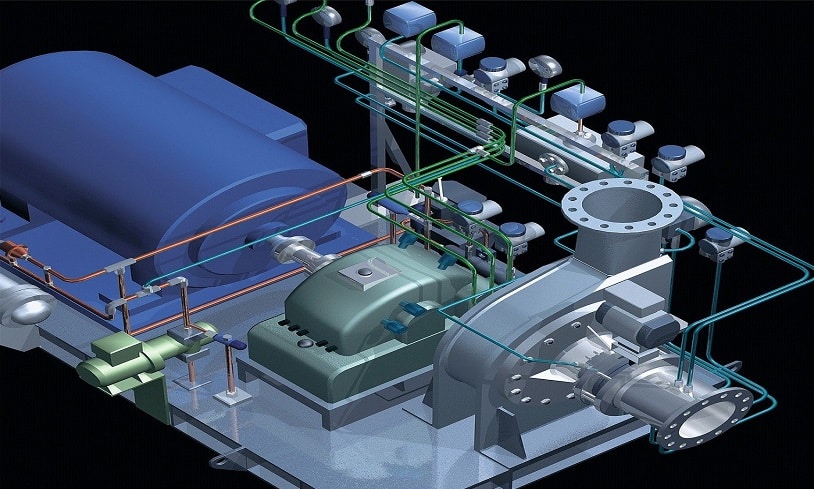Air compressors are indispensable tools in numerous industries, powering everything from pneumatic equipment to HVAC systems. They are complex machines, and their efficiency is vital for the seamless operation of many business processes.
Understanding how to address common issues quickly and efficiently is crucial to minimizing downtime and extending the lifespan of these essential machines. In cities like Chicago, where industrial activity is high, air compressor repair Chicago services are particularly valuable. Quick access to emergency compressor repair services ensures that businesses can get prompt solutions to any compressor issues, thereby avoiding lengthy disruptions.
This guide aims to equip you with knowledge on recognizing issues, performing basic diagnostics, and taking immediate actions when necessary, ensuring that your air compressor remains in top condition. Furthermore, familiarizing yourself with local repair services like those in Chicago can enhance your response times to compressor failures, further safeguarding your operations against unexpected downtimes. By leveraging both routine maintenance strategies and emergency compressor repair options when needed, you can ensure that your air compressors continue to function effectively, supporting your business’s ongoing needs.
Recognizing Common Air Compressor Issues
One of the first steps in effective air compressor maintenance is recognizing signs that indicate potential problems. Common indicators include unexpected noises, such as knocking or hissing, which can suggest internal issues or leaks. Another red flag is a drop in performance, evidenced by decreased air pressure or increased energy consumption. Identifying these symptoms early can be crucial in preventing the escalation of damage, which can lead to more extensive and costly repairs.
Quick Diagnostic Tips
Before reaching out to a professional air compressor repair service, there are several diagnostic steps you can take to possibly pinpoint the issue yourself. Start by examining the most common trouble areas, which include air filters, hoses, and connections. Check these components for any blockages or leaks that could be causing performance issues. It’s also crucial to ensure that the oil level is adequate and that there are no signs of contamination, such as discolored or gritty oil, which can indicate more severe internal issues.
In addition to these checks, listen for any unusual noises and observe the pressure gauges while the compressor is running. Unusual sounds, such as knocking or hissing, could signify internal damage or air leaks, while discrepancies in pressure readings might point to faulty valves or a failing compressor pump. Conducting these preliminary inspections not only helps isolate straightforward problems but also provides a clearer picture to share with repair technicians, potentially speeding up the repair process and reducing downtime.
Immediate Actions for Emergency Compressor Repair
In the event of an emergency compressor repair, certain immediate actions are essential to mitigate further damage and ensure safety. First, power down the unit to prevent any additional strain on its components. Check for any obvious signs of overheating or mechanical failure. If the situation seems beyond simple troubleshooting, do not attempt further repairs; instead, contact a professional repair service immediately. Prioritizing quick and safe responses can prevent costly damages and ensure that professional help resolves the issue effectively.
Choosing the Right Repair Service
When selecting a service for your air compressor repair, it’s important to consider several factors to ensure you receive timely and effective assistance. Look for certified and experienced technicians who specialize in air compressor repair. Evaluate their availability and response times, particularly if you need emergency compressor repair services. Checking reviews and asking for recommendations can also guide you to reliable providers who are known for quality service and customer satisfaction.
Preventative Maintenance Strategies
To avoid frequent calls for emergency compressor repair, it’s crucial to implement a robust preventative maintenance plan. Regular maintenance not only ensures that your air compressor operates efficiently but also significantly extends its service life. Begin by establishing a routine inspection schedule that includes checking for wear and tear on belts, hoses, and other vulnerable parts. Change oils and filters at manufacturer-recommended intervals, and monitor system pressure and temperature settings to ensure they remain within optimal ranges. Such proactive measures can preempt many common issues, reducing the need for urgent repairs and helping maintain continuous operation.
Conclusion
Maintaining your air compressor through timely recognition of issues, quick diagnostics, and effective repairs is essential for ensuring operational efficiency and longevity. By equipping yourself with the knowledge to handle common problems and take immediate action when necessary, you can significantly reduce downtime and repair costs. Regular preventative maintenance is key to avoiding emergency compressor repair situations, keeping your equipment running smoothly, and ensuring it supports your business operations without interruption. Adopt these strategies to maximize the performance and lifespan of your air compressor, ensuring it remains a reliable asset for your operations.


